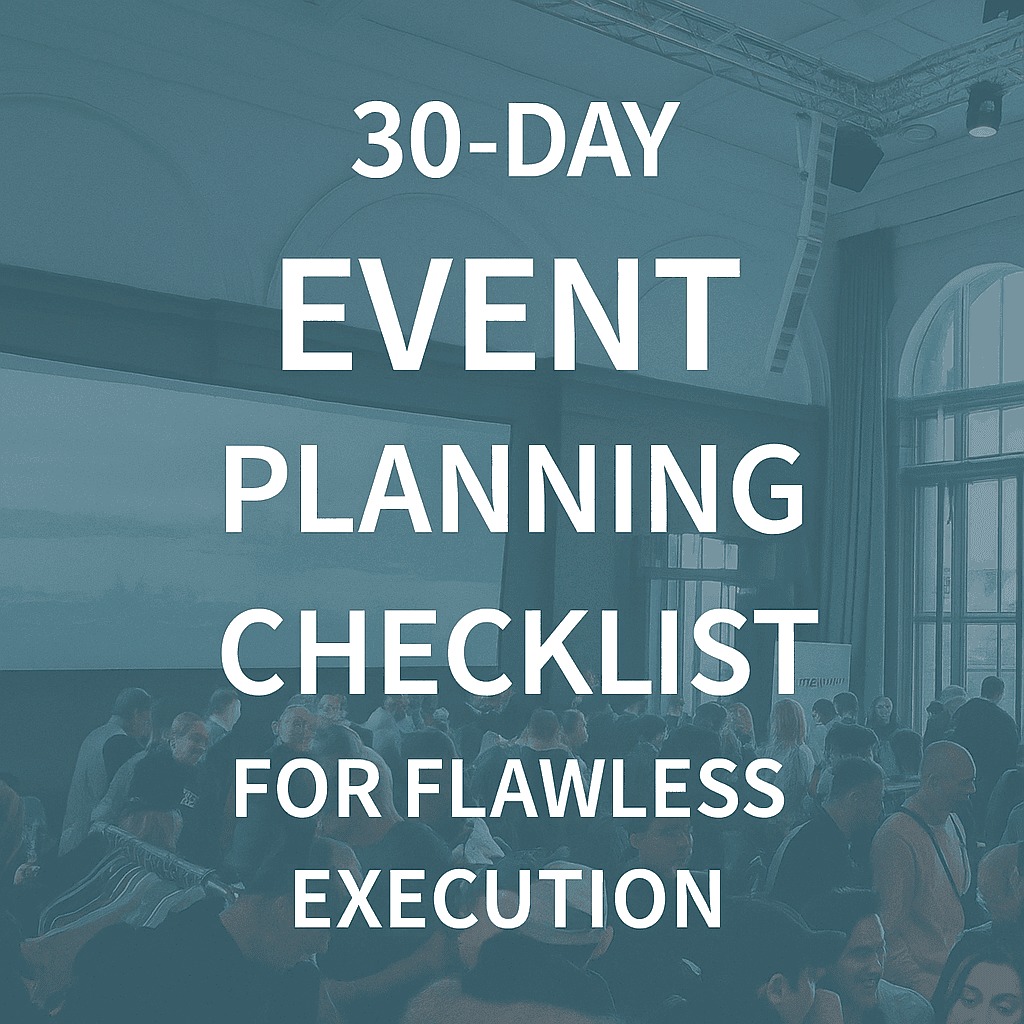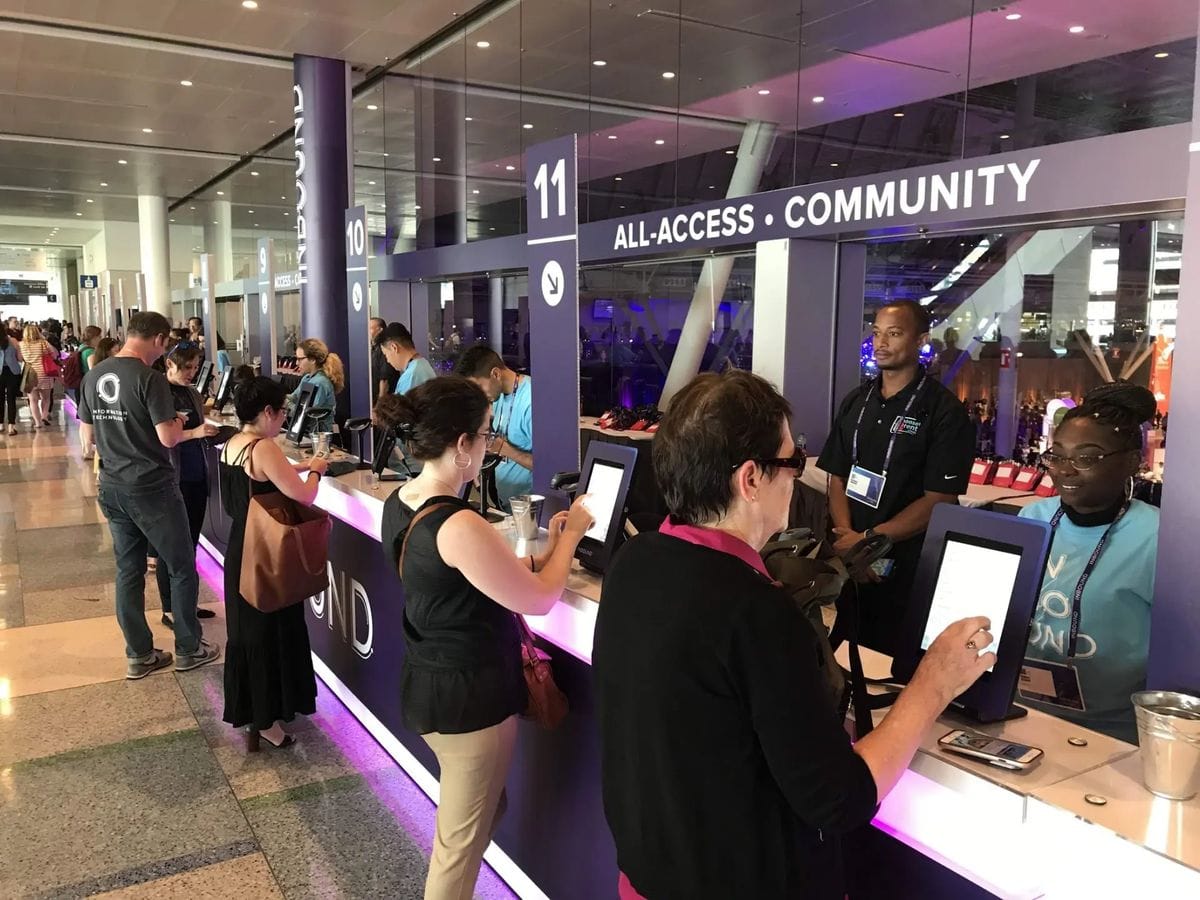The final month before your event can feel overwhelming, but with a structured approach, you can transform those pre-event jitters into confident execution. Whether you're organizing a corporate conference, wedding, or community gathering, this comprehensive 30-day timeline will ensure nothing falls through the cracks during the crucial final stretch.
Week 4: Foundation Check (Days 30-22)
The fourth week before your event should focus on solidifying your foundation. Start by confirming your venue booking and conducting a thorough final walkthrough with the venue manager. During this visit, review floor plans and seating arrangements while testing all audiovisual equipment and lighting systems. This is also the perfect time to verify parking availability and accessibility features for guests with special needs.
Your guest management efforts should intensify during this period. Send final invitations to any remaining attendees and set up a reliable RSVP tracking system with deadline reminders. Create comprehensive guest lists for registration and check-in purposes, and begin preparing name badges, welcome packets, and seating charts. Don't forget to confirm any dietary restrictions and special accommodation requests that have been submitted.
Staff coordination becomes critical at this stage. Finalize event team assignments and ensure everyone has current contact information. Schedule staff briefing meetings for the week before the event and prepare detailed run-of-show documents for all team members. Confirm volunteer schedules and assign specific responsibilities to each person. Create emergency contact lists and develop backup plans for key positions in case of last-minute changes.

Week 3: Content & Materials (Days 21-15)
The third week demands intense focus on content finalization and material preparation. Complete all presentation materials and confirm speaker requirements, ensuring that your event program, agenda, and printed materials are ready for production. Review and approve all marketing collateral and signage, while confirming arrangements with entertainment, speakers, and special guests. Test all technology presentations and have backup systems ready to deploy if needed.
Supply management requires careful attention during this period. Order any remaining supplies, decorations, and promotional items while confirming catering numbers and finalizing menu selections. Arrange transportation for VIP guests or those with special requirements, and prepare gift bags, welcome packages, and giveaway items. Create detailed inventory checklists that will make setup tracking much easier when the event day arrives.
Your communication strategy should be fully activated now. Draft and schedule reminder communications to attendees, and prepare social media content with a posting schedule. Create press releases and media alerts if your event warrants media coverage. Set up event hashtags and encourage attendee engagement across social platforms. Additionally, prepare post-event survey questions and feedback forms so you can capture valuable insights immediately after the event concludes.
Week 2: Final Preparations (Days 14-8)
The second week focuses on final preparations and vendor coordination. Confirm all vendor contracts and delivery schedules, conduct a final menu tasting, and approve all catering details. Review setup and breakdown timelines with each vendor to ensure smooth logistics. Confirm payment schedules and any outstanding balances, and establish clear day-of-event contact protocols with all suppliers.
Registration and check-in processes need your attention during this period. Finalize attendee numbers and create updated guest lists for easy reference. Prepare all registration materials and check-in systems, testing any mobile apps or digital check-in processes you plan to use. Train your registration staff on procedures and troubleshooting techniques, and set up payment processing systems for any day-of purchases.
Risk management becomes paramount in week two. Review your insurance coverage and emergency procedures, identifying potential weather backup plans for any outdoor elements. Prepare contingency plans for common issues like no-shows, technical failures, or vendor problems. Confirm security arrangements and crowd management protocols, and create detailed contact lists for emergency situations.
Week 1: Final Sprint (Days 7-1)
The final week requires intensive team coordination and last-minute confirmations. Conduct comprehensive staff meetings with all team members, reviewing timelines, responsibilities, and emergency procedures. Distribute final versions of all event materials and contact lists, assigning specific roles for setup, execution, and breakdown. Confirm arrival times and dress code requirements for all staff members.
Your last-minute confirmations should include calling all vendors to verify delivery times and requirements. Confirm your final headcount with catering and seating arrangements, and verify weather forecasts, activating backup plans if necessary. Test all equipment one final time, including microphones, projectors, and any interactive technology. Prepare a comprehensive day-of-event survival kit containing extra supplies for common problems.
The day before your event requires complete venue setup and decorating. Conduct a final walkthrough with venue management, addressing any last-minute concerns. Brief all staff members on their specific responsibilities and confirm transportation arrangements for key personnel. Prepare a detailed timeline for event day execution that accounts for every major milestone.

Event Day Success and Beyond
Start your event day early with a team meeting to review the timeline and address any final questions. Assign point persons for major areas like registration, technical support, and vendor coordination. Maintain communication throughout the event using walkie-talkies or group messaging apps, and designate someone to handle social media updates while you focus on overall coordination.
Within 48 hours of your event, send thank-you messages to attendees and collect feedback through surveys. Begin vendor payment processing and schedule a debrief meeting with your team to capture lessons learned. This comprehensive approach to the final 30 days will help you create memorable experiences that leave lasting impressions on everyone involved, transforming careful planning into successful execution.


